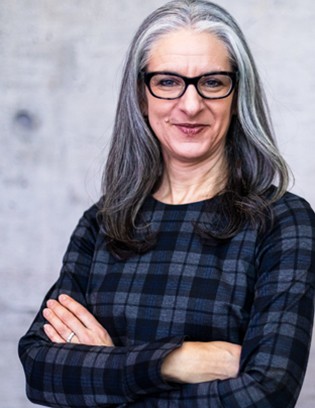March 2020

If you believe gender inequality stems from women avoiding risk and needing to “lean in,” you would be wrong. But you would not be alone.
“The current conversation on gender equality is stale and out of date,” says Sarah Kaplan, founder and director of the Rotman School of Management’s Institute for Gender and the Economy (GATE).
With the goal of changing this conversation through rigorous research, GATE-supported studies are getting to the core of gender bias in our businesses and economy. They’ve shown that CEOs who grow up in gender unequal settings allocate fewer resources to women executives than men executives. They have also revealed that the most prominent cause of the gender wage gap is not unequal pay for equal work, but job segregation and career changes for women after the birth of their first child.
GATE also seeks to uncover effective ways to level the field — including interventions like creating “opt out” career promotion systems, altering gendered wording in job ads and re-structuring evaluation scales.
“Structural barriers are pervasive, and we have to understand root causes to remove them,” says Jonathan Lister (BA ’94, MBA ’00), vice-president of Global Sales at LinkedIn and a member of GATE’s “Power Circle” of supporters. “GATE is doing research that hasn’t been done before. Their findings and insights are crucial to understanding how we can increase equality and inclusivity in our organizations.”
Lister and other donors are partnering with GATE to change the conversation about gender equality. He and the other seven Power Circle members share professional experiences, such as his efforts to increase diversity, inclusion and belonging among the approximately one thousand team members at LinkedIn. Allies, such as GATE’s industry partners, media and academic partners, and individual sponsors, enable research on social issues that are often misunderstood. These include topics like transgender employees’ experiences in the workplace, gender-based business analysis, and how fathers make use of parental leave benefits and family-friendly policies.
“We can’t make change without the people who hire and promote people,” says Kaplan, Distinguished Professor of Gender and the Economy and Professor of Strategic Management at Rotman and best-selling author of business books Creative Destruction and The 360° Corporation: From Stakeholder Trade-offs to Transformation. “That’s why we’re doing so much outreach, partnering with industry and government, and are so engaged with the community.”
Knocking down gender barriers is but one of the many pressing challenges that Rotman is helping address, with the help of a strong network of supporters.
“Structural barriers are pervasive, and we have to understand root causes to remove them,”
– Jonathan Lister (BA ’94, MBA ’00)
Committed to questioning current practices and finding creative solutions, Rotman supporters invest in research, education and centres such as Behavioural Economics in Action at Rotman (BEAR), the Business Design Initiative, the Clarkson Centre for Business Ethics, the Sandra Rotman Centre for Health Sector Strategy and more.
A recent example of donors coming together to tackle an under-examined issue is the creation of the new David and Sharon Johnston Centre for Corporate Governance Innovation. Fourteen community organizations joined forces to raise $5.5 million for its establishment in May 2019. Supporting academic research and teaching that improves the effectiveness of boards of directors, the Centre focuses on underserved sectors such as private and public family enterprises, dual-class public issuers, cooperatives, Crown corporations and the arts.
“Small organizations like family businesses are a major driver of our economy, but they’re treated as second-class citizens,” says Centre Director and Strategic Management Professor David Beatty. “The reality is that what we think we know about good governance for these businesses is all based on assumptions. And much of this ‘conventional wisdom’ is just not supported by data.”
Whether it’s uncovering a business-sector blind spot (such as the governance of family businesses) or getting to the root of gender inequality in specific sectors, Rotman supporters are committed to disrupting “business as usual” and re-imagining a better world.
Written by Sharon Aschaiek | Photo by Nupur Chitalia
This article is featured in the 2019 Investors' Report »